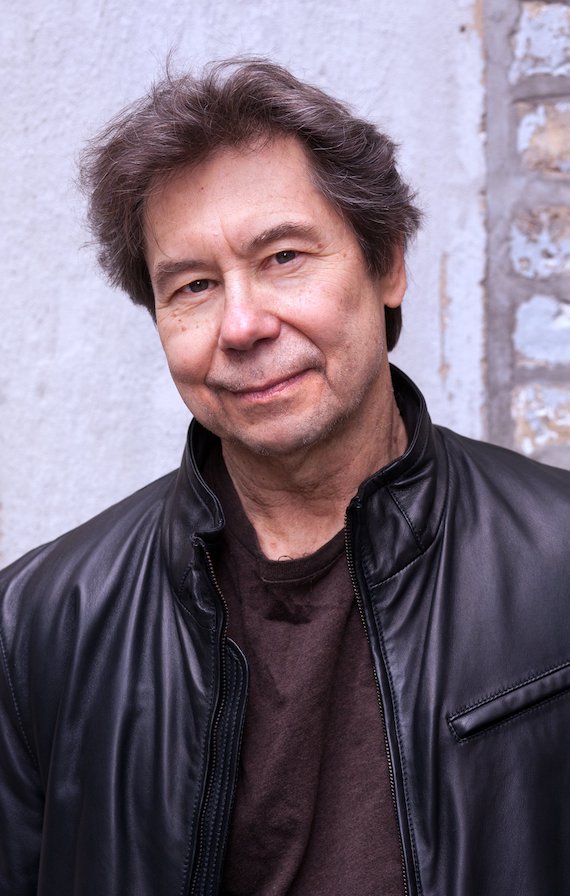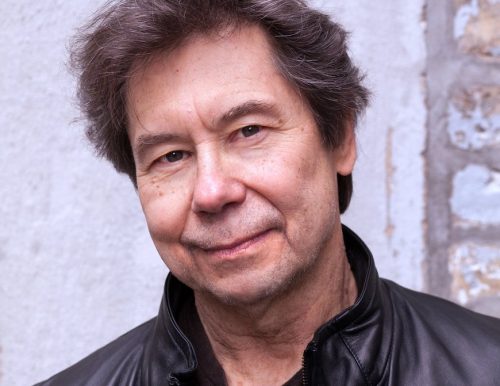By Mike Mastromatteo | Catholic News Service
While past-era writers such as Carl Sandburg, Richard Wright, Theodore Dreiser and James Farrell are forever associated with the city of Chicago, a more contemporary native son has quietly been added to the list of “Chicago’s storytellers.”
Writer and poet Stuart Dybek, a product of St. Ann’s and St. Procopius parishes in Chicago’s South Side, discarded a possible career in medicine to become a diverse and compelling spinner of tales that continue to promote wonder and a sense of inner-city mystery among his readers.
Dybek has a gift for creating stories and images from commonplace events. There are frequent references to full moons on winter evenings’ baseball games with phantom outfielders’ weed-strewn gardens; rusted, decaying factories and warehouses; and an irrepressible sense of life on the streets through which his characters look to add some small solace to often-broken lives.
A 1959 graduate of the Augustinian-run St. Rita of Cascia High School, Dybek published some experimental fiction in the mid-1970s and has since put out six short-story collections and two books of poetry. His most recent work, “The Start of Something,” released in 2016, is a collection of some of the best of previously published short stories.

Like many contemporary American novelists, Dybek earned a Master of Fine Arts degree from the Iowa Writers’ Workshop at the University of Iowa. He has a second master’s degree in literature from Loyola University Chicago.
He is now distinguished writer in residence at Northwestern University in Evanston, Illinois. Previously, Dybek taught English literature at Western Michigan University in Kalamazoo. Since the outbreak of the COVID-19 pandemic however, Dybek has been teaching from a remote location in Florida.
In a series of interviews with Catholic News Service, Dybek reflected on the influence of his Catholic faith — especially within Chicago’s small but colorful Polish community — on his diverse and compelling creative output.
“The demographic there changed while I was growing up, from Eastern European to Hispanic, and the (neighborhood) is also known as the barrio,” Dybek said. “Both cultures are staunchly Catholic, and the churches in the area adapted. Confessions, for instance were heard in English, Polish and Spanish.”
Dybek alluded to a “theater of faith” that played no small role in providing the similes, metaphors, paradoxes and quiet humor that color so much of his work.
There’s often a touch of humanity and sympathy in the allusions that show up in Dybek’s prose. In the short story “Confession,” for example, Dybek relates a memory of a young teenager confessing transgressions to a kindly but burned-out pastor.
“‘Father,’ I whispered, ‘Father,’ but he was out, snoring. I knelt wondering what to do, until he finally groaned and hacked himself awake.
“As usual, I’d saved the deadly sins for last: the lies and copied homework, snitching drinks, ditching school, hitchhiking … Before I reached the dirty snapshots of Korean girls, stolen from my war-hero uncle, Uncle Al, and still unrepentantly cached behind the oil shed, Father B knocked and said I was forgiven.
“As for Penance: ‘Go in peace, my son, I’m suffering enough today for both of us.'”
Dybek suggested the “Confession” story captures how Catholicism was an integral cultural element in the narrator’s life. “The tone might be comical and ironic but there is no doubt the narrator’s life could not have been lived in this Polish American working-class ‘hood’ without the influence of the church,” he said.
Several of Dybek’s collected works contain religious diction and references that internalize the experience of growing up Catholic. The memories put down on paper become the poet’s vocabulary for describing the sacred in life and the sense of awe and mystery that makes for a spiritual, if not necessarily a moral dimension.
In the short story “Je Reviens” (“I Will Be Back”), for example, Dybek employs a striking simile to recall a timeless scene from a funeral Mass: “Tall candles stood at attention on both its (casket) sides; at its foot, an altar boy waved a censer, and the church filled with the smoke of incense as if someone had uncorked the breath of the Dark Ages.”
Dybek aims at a certain “subculture” in composing tales about a working-class, immigrant neighborhood in an industrial city like Chicago.
“It would be impossible to describe a place in which communities form around parishes, where there’s another church every half mile, where the bells from different churches ring the Angelus each evening without writing about the religion that so governs lives there,” he said. “To write about culture, one is going to write about Catholicism in that cultural context.”
It’s not just the prose, however. Many of the poems found in the author’s “Streets in Their Own Ink” collection are replete with Catholic imagery. In “Benediction” for example, the reader discovers Dybek’s uncanny ability to incorporate elements of nature and urban outdoor life into mystical imagery.
“For me, the complexity of a grasshopper
catapulting
from the Congo behind a billboard
was irrefutable proof
of God and his baffling order.
And in my heart
I still kneel on a weed lot in summer,
seeking benediction
beneath the glittering cross
of a dragonfly.”
Dybek said he appreciates how mythology and the powerful images in the Bible and church art allow writers to bring depth and complexity to their narratives.
Despite being a few years beyond normal retirement age, Dybek hopes to continue writing.
“I’m working now on a collection of stories that is again set in various places, some of them imaginary and also a book of poems set in the Caribbean, and on a bildungsroman/memoir about growing up Catholic, titled ‘St. Stuart.'”
Dybek has earned a number of awards over the years, including four O. Henry prizes for short fiction. He has also won praise from reviews and critics throughout North America. A New York Times critic reviewing his 2014 collections “Ecstatic Cahoots” and “Paper Lanterns” described Dybek as “not only our most relevant writer, but maybe our best.” Similarly, a Washington Post reviewer praising the 2004 collection, “I Sailed With Magellan,” suggested “the fact that these damaged, deluded, even violent people have lived and loved and breathed the foul, frigid air of Chicago … is surely a miracle worthy of celebration.”






















